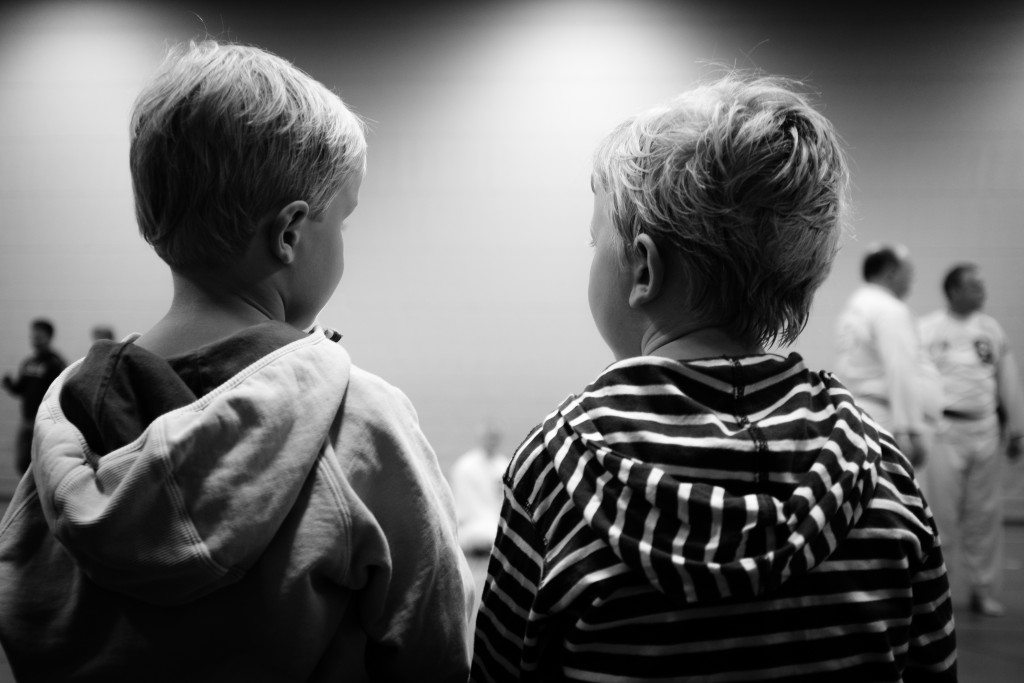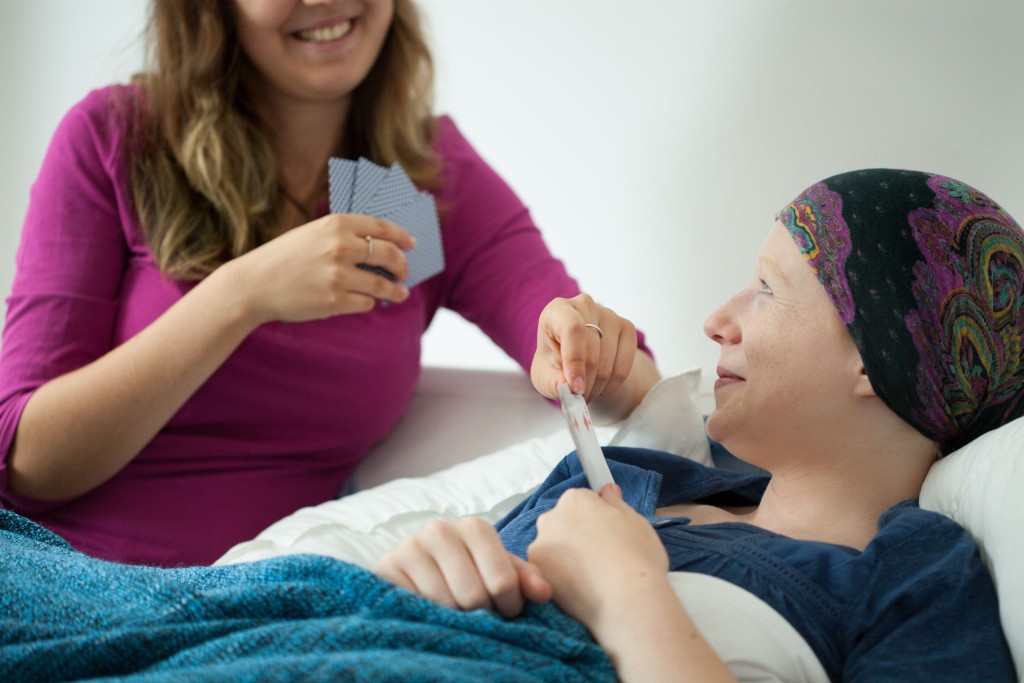At Pasadena CyberKnife Center, we are passionate about helping our patients rekindle hope and reclaim their lives – and we’re never more grateful to do it then when we’re working with a veteran. At our office, we are proud of the long tradition of service that our veterans continue to selflessly uphold, and we firmly believe in the importance of giving back to our veterans. That’s why we’re excited to announce that our office has joined the Veteran’s Choice Program – and if you’re a veteran, you may be eligible for treatment.
Giving Choice in Medical Care
The Veteran’s Choice Program, or VCP, is an initiative aimed at easing the burden on VA hospitals and ensuring that veterans get timely, convenient access to the care they need. Essentially, the program allows qualifying veterans to seek treatment from a qualified non-VA hospital if they can’t easily get treatment through the VA system. It’s a great way for veterans to access the high-quality care they need without excessive travel or wait times.
Do I Qualify for the Veteran’s Choice Program?
If you’re a veteran, you may well qualify for the VCP. Here are a few of the factors for qualification:
- Can’t schedule an appointment within 30 days of the clinically indicated date
- Live more than 40 miles from a VA facility
- Must travel by boat, ferry, or plane to get to a VA facility
- Face an unusual or excessive burden in getting to a VA facility
Eligibility is determined on a case-by-case basis, but if you’ve had difficulty getting treatment from the VA for whatever reason, you may be able to join the program. Check out this information sheet or call (866) 606-8198 to find out if you’re eligible – or, for more information, reach out to us.
Contact Your Pasadena CyberKnife Cancer Treatment Center
If you’d like to find out more about the VCP, learn more about CyberKnife treatment, or want to schedule a consultation with us, feel free to call us at (626) 325-0777 or reach out to us at our contact page. We can’t wait to hear from you, and whether you’re a proud veteran or a citizen who wants to take their life back, we look forward to helping you find hope even in the darkest situation.
More
At Pasadena CyberKnife Center, we believe everyone deserves a happy, healthy life and to take hope even in the darkest of times. That’s why we’re proud to provide CyberKnife: a revolutionary cancer treatment method that combines some of the most advanced medical technologies in the world to create a cancer treatment that’s more comfortable, convenient, and effective than almost anything else on the market today. Thanks to its unique combination of technologies, CyberKnife comes with a variety of advantages over other treatments.
The Benefits of CyberKnife
- Versatile: Because CyberKnife can target a tumor anywhere in the body from almost any angle, it can be used to treat a wide variety of cancers including brain, lung, head & neck, prostate, and many more.
- Non-Surgical: CyberKnife treatment is performed purely through precision radiation beams, meaning there’s never any need for invasive surgery or cutting of any kind.
- Motion-Tracking: Thanks to the Synchrony Respiration Tracking System, CyberKnife can automatically measure and account for movement during normal breathing and respiration.
- Comfortable: Unlike other radiation therapies, CyberKnife doesn’t use painful braces and restraints during treatment. All the patient needs to do is lie still on a comfortable platform as CyberKnife attacks their cancerous tumor.
- Precise: CyberKnife’s advanced targeting systems mean there’s minimal damage to surrounding tissues and cells.
- Convenient: CyberKnife has almost no side effects and no recovery time, so patients can continue going about their daily lives during treatment. While other forms of treatment often require 30-40 sessions, CyberKnife typically requires only 1-5 fraction treatments.
- Effective: CyberKnife is one of the most effective cancer treatments on the market today, and we’ll continually monitor the tumor to ensure treatment was effective.
Contact Your Pasadena, CA Cancer Treatment Center
A cancer diagnosis used to be a death sentence, but with CyberKnife, there’s new hope. If you or a loved one has recently been diagnosed with cancer, don’t wait – contact us today. Feel free to call us at (626) 325-0777 with any questions, or if you’d like to schedule a consultation, you can reach out to us at our contact page. We can’t wait to hear from you, and we look forward to helping you free yourself from cancer and reclaim your life.
More
Explaining what cancer is to a child can seem like a daunting task; cancer can be a very emotional topic for some, and difficult to understand for others. Here, we have outlined a few tips for describing cancer to children depending on their age.

Child Development At Different Ages:
First, it is important to acknowledge how children understand and interpret things according to their age:
- 3-5: This is a time of verbal development; they are better able to communicate with those around them. It is also a time of increased imaginary play, and children this age may have a hard time distinguishing fantasy versus reality.
- 5-9: At this age, children become better at forming relationships with people outside of the family. They still, however, want to be the center of attention and oftentimes will sulk, pout, or feel slighted when they are not.
- 10-14: Now is the time when those outside relationships become even more important, and can have a bigger influence on their behavior and emotions. They are curious, enjoy learning, and have an easier time doing so because they are able move away from concrete thinking and think more abstractly.
Taking these developmental attributes into account, you can use them to better explain cancer, doctor’s appointments, treatments, and more to your children.
Explaining Cancer To Different Age Groups
These age groups are broken up a little differently, but follow the basic understandings of each age group listed above.
3-7:
- Use simple terms to describe cancer: things like sick or ill, but reassure them that it is not like a cold or flu that is easily passed around.
- Make sure they aren’t fearful of getting it themselves or concerned that they were in any way the cause of someone getting cancer.
- On the younger side of this age group there is still a lot of fear that drives their thinking and understanding, so be sure to reassure them that symptoms, processes, hospital care, etc. is normal for something like cancer.
- Because children over the age of 5 tend to form relationships with people outside of the family, it may be a friend, neighbor, school student, etc. that is struggling with cancer whom the child will ask about.
7-12:
- At this age children will understand a more detailed explanation of cancer, because they have more experience with learning about the body, and being sick themselves.
- Children this age may seek out information about cancer on their own; encourage them to share what they find with you so that you can discuss it together. This will help them not worry about any information they may find, and allow you to help them understand the healing and treatment processes better.
- This age group is better able to feel empathy and may be concerned about their friends or family and their pain. Discuss ways you can be of help to those diagnosed with cancer and have your child help too.
Teenagers:
- This age group will understand the details of cancer and will be interested in the effects, both in everyday life and on the body.
- They will better recognize, without having to see for themselves, how cancer may affect someone’s daily activities.
- They will better understand the correlation between cancer and its side effects, and how treatments can help/are necessary.
- They may be concerned about physical appearance — hair loss, weight gain, etc. Help them come up with ways to make these potential side effects okay, and come up with suggestions on how to make their loved ones feel better about them too.
No matter the age group you are discussing cancer with, be sure to adhere to the following tips:
- Be open and encouraging in conversation. Allow them to ask questions and encourage them to discuss their thoughts.
- Be reassuring and understanding of their feelings and fears.
- Share your feelings about the situation; let them know that you have thoughts, concerns, and emotions too, since you are a big example to them in their lives.
- Be educated yourself — make sure you have researched specific kinds of cancer and are prepared to answer as many questions as you can.
- Discuss schedules and treatments, especially if the person that has been diagnosed with cancer is someone who lives in the same house. Let the child know when that person will be gone and how they might be feeling when they come back.
- Get help from others — hospital workers, therapists, teachers, friends, family, other cancer patients, and survivors.
Describing cancer to a child is never an easy thing to do. But it can be a little bit easier if you understand the different thought processes and developmental stages of a child. Do your research and be calm and helpful rather than overly emotional at the time of discussion.
If you have any other questions about cancer be sure to visit Pasadena CyberKnife for more information.
More

Cancer is an ongoing concern for many people. Though a definitive cure continues to elude our efforts, much has been discovered and developed with advanced forms of treatment that have increasing success rates. Yet, there are still emotional battles that many cancer patients must face. Sometimes, it can be hard to see the everyday joys you once experienced, but there is still sunshine and happiness that you can experience and that can uplift your spirits. Here are some therapeutic influences that can help bring more positivity into your life while undergoing cancer treatment.
Be Positive
A positive attitude can go a long way. Negative energy can have a damaging effect on your overall state, even when you’re not fighting cancer. Depression can be a byproduct of a cancer diagnosis, so if you find yourself losing hope or having depressed thoughts, then find someone to talk to. Psychiatrists are a great source of helping others fight depression through effective coping techniques and psychotherapy in addition to medication. Even if you do not experience depression, it’s helpful to maintain a positive attitude throughout your treatment. Focus your energy and your thoughts on a bright future beyond cancer. That being said, it’s okay if on occasion you just don’t feel like putting on a happy face. There are days where you just need to give in to your feelings, and that’s okay. Tomorrow is another day.
Relax
Stress and anxiety are common symptoms found in those with cancer. The stress of undergoing treatment, life with cancer, and medical bills can weigh heavily on your conscience. Find ways to help you find peace and relaxation. Activities such as yoga or stretching have been known to help others relax and wind down, but what matters is finding something that works for you. Reading, listening to music, watching a show, or just escaping out in nature are effective ways to relax.
Stay Healthy
Exercise is extremely therapeutic and it focuses your energy on creating a positive result: a healthier you. Your energy levels will vary depending on your diagnosis and method of treatment, but find a physical activity that creates exertion. You body needs additional strength, so a healthy diet is important as well. Be sure to replenish your body with healthy foods, filled with vitamins and minerals.
Get Involved
There are many inspiring stories of people diagnosed with cancer getting involved with organizations that fight cancer or raise awareness and support. Becoming involved with these efforts brings positivity into your life and allows you to be proactive in a righteous cause. You’ll become an inspiration for others while also finding inspirations for yourself. There are plenty of fundraisers, awareness campaigns, and organizations dedicated to fighting cancer and helping those diagnosed. Find one near you and sign up.
Get a Dog
A dog’s love is truly unconditional. A dog will support and love you when you need it most. In fact, doctors have conducted studies to see the positive effects a dog can have on cancer patients during treatment, such as chemotherapy or radiation therapy. These dogs, known as therapy dogs, are able to increase the patient’s emotional well-being. According to the Executive Director of The Good Dog Foundation, Rachel McPherson, “The patients actually came for their chemo and radiation more frequently and it lowered their anxiety and stress.” All thanks to a canine friend to help and distract them.
Spiritual Support
Whether you’re religious or not, finding spiritual support can provide an uplifting and positive outlook in times of dire need. Spirituality isn’t necessarily about believing in God, though for many it certainly is; it’s about your beliefs, values, and discovering your place in this world. Some may find faith and solace within the walls of a church or talking with an ecclesiastical leader, while others may connect with the world by immersing themselves in nature or deep meditation. Cancer patients often take a deeper look at their own lives and existence; find a way to embrace your spirituality and you just may find strength you didn’t know you had.
Laughing
And then there’s the old adage, “Laughter is the best medicine.” Perhaps “best medicine” is a bit hyperbolic, but laughter is known to have many positive effects on the body. It can increase blood flow and some studies even suggest that laughter can help build up antibodies and boost your immune system. In maintaining a positive attitude, laughter really is essential. By laughing you’ll provide an escape for your pain, anxieties, and stress. It can even help you sleep better, giving your body the needed rest and energy it needs the following day.
More
How to Support Your Partner During Prostate Cancer Treatment
 Prostate cancer doesn’t just affect the man diagnosed; the disease’s impact also extends to his partner, children, parents, and friends. As the partner of a man with prostate cancer, it can be hard to know how to respond and what to do to support your other half through his treatment and beyond. The diagnosis itself is terrifying for many partners. Physical and emotional healing after treatment can take a long time, and side effects may linger.
Prostate cancer doesn’t just affect the man diagnosed; the disease’s impact also extends to his partner, children, parents, and friends. As the partner of a man with prostate cancer, it can be hard to know how to respond and what to do to support your other half through his treatment and beyond. The diagnosis itself is terrifying for many partners. Physical and emotional healing after treatment can take a long time, and side effects may linger.
If your partner is diagnosed with prostate cancer, you can offer both practical and emotional support by gathering information, being present for doctor’s appointments, and encouraging your partner to get plenty of rest, eat right, and take good care of himself. You should know what to expect following your partner’s diagnosis. Don’t forget to take care of yourself, too.
Give Your Partner Practical Support
One of the most important things you can do as the partner of a man going through or about to begin prostate cancer treatment is to offer practical support. This means accompanying your partner to doctor’s appointments and treatment sessions, as long as he’s amenable to it. Ask questions, make notes, and be an advocate for your partner during his treatment. Often, you’ll pick up on things that your partner may have been too distracted to notice. Your partner may also need help with transportation, scheduling, filing insurance claims, and other mundane tasks related to treatment.
You can also help your partner by communicating with others in his life about his diagnosis. Many men prefer to keep a diagnosis of prostate cancer private, but if your partner wants to reveal his diagnosis and treatment progress to others close to him, he may need you to do the talking. Be prepared to help your partner talk with loved ones about his prostate cancer.
 Be There for Your Partner Emotionally
Be There for Your Partner Emotionally
Prostate cancer and its treatment can leave emotional wounds as well as physical ones. Encourage your partner to discuss his feelings with you, but don’t be pushy about it. Remind him that he’s not less of a man because of prostate cancer, and that it can take some time for him to begin to feel like his old self again.
Know What to Expect
Knowing what to expect after a prostate cancer diagnosis can make it easier for both of you to cope. Depending on the treatment, your partner may face side effects including:
- Temporary or ongoing erectile dysfunction
- Low sex drive
- Weight gain and muscle loss
- Hot flashes
- Brittle bones
- Fatigue
- Urinary incontinence or bowel problems
- Infertility
Sometimes prostate cancer treatment can cause cognitive changes, too, including memory problems and trouble concentrating. Radiosurgery treatment through CyberKnife will leave patients with fewer side effects.
Take Care of Yourself
You won’t be able to support your partner if you allow yourself to become emotionally depleted, so take care of yourself, too. In addition to eating right, exercising, and getting plenty of sleep, take time for the hobbies you enjoy and the other people and things you love. Spend time with friends, talking about things other than your partner’s prostate cancer. Set aside time to relax each day.
It’s not easy supporting a partner who’s going through prostate cancer treatment. You can help by handling many of the mundane tasks associated with managing medical care, and by offering your partner a kind ear. Facing prostate cancer takes courage, but the two of you will win out in the end.
More




